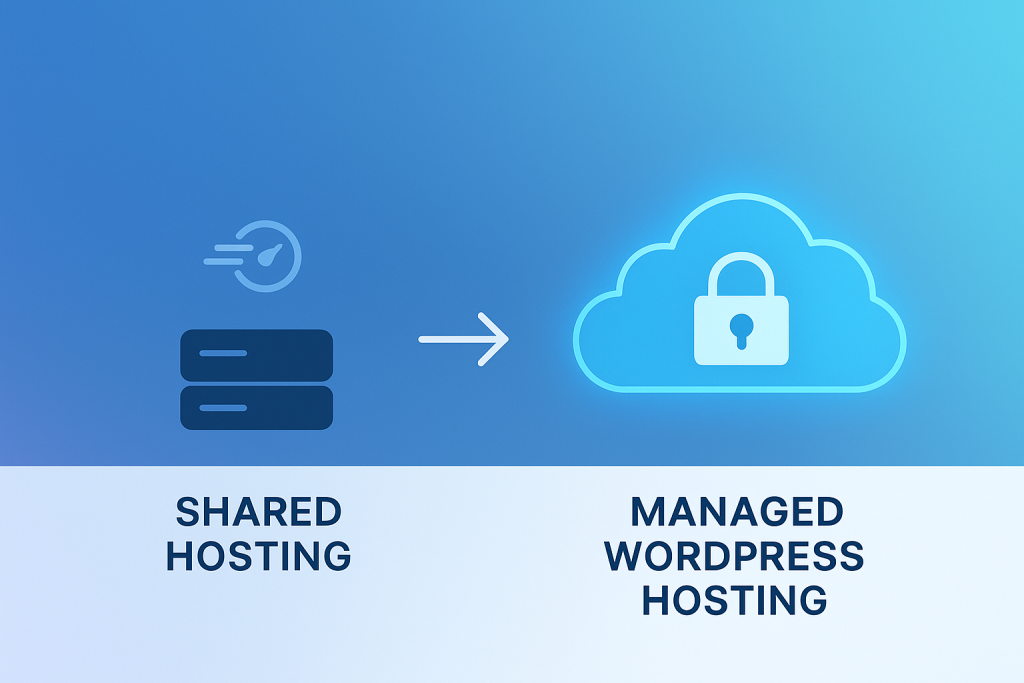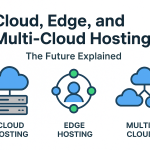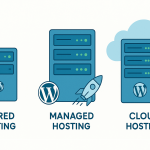WordPress powers nearly half the internet, from small passion projects to global enterprise websites. Its flexibility is unmatched, but that flexibility comes with a trade-off: maintenance.
As a WordPress site owner, you face a critical fork in the road when choosing hosting: Do you stick with cheap, entry-level Shared Hosting, or do you pay the premium—often 2x to 5x more—for Managed WordPress Hosting?
It’s a huge price difference, and it begs the question: Is Managed Hosting truly worth the extra investment?
This guide will break down exactly what Managed WordPress Hosting gives you, who needs it, and how to calculate whether the “extra cost” is actually a smart business saving in disguise.
What is Managed WordPress Hosting? (The Simple Definition)
Traditional Shared Hosting gives you server space and a control panel, but you’re responsible for the health of your site.
Managed WordPress Hosting is fundamentally different. It is a premium service environment built specifically for WordPress, where the hosting company takes on nearly all the frustrating, time-consuming, and complex technical upkeep.
Think of it this way:
- Shared Hosting is like buying a car and having to handle all the oil changes, repairs, and tuning yourself.
- Managed Hosting is like having a premium car with a full-service maintenance plan. You only focus on driving; the experts handle everything under the hood.
The Services You’re Actually Paying For:
- Performance Tuning: Built-in caching layers, CDN integration, and server configurations optimized exclusively for WordPress database queries.
- Ironclad Security: Web application firewalls (WAF), continuous malware scanning, and often a hack-fix guarantee.
- Automated Safety Nets: Daily, automatic backups with one-click restore functionality, so you never lose more than 24 hours of work.
- Hands-Off Maintenance: Automatic core and plugin updates handled safely by the host.
- Expert Support: Access to support staff who are WordPress specialists, not just general tech support.
The Value Proposition: Trading Time and Risk for Money
The “extra cost” for Managed Hosting is best viewed as an insurance policy and a massive time-saving engine.
1. Guaranteed Speed and Performance
Managed hosts eliminate the “Noisy Neighbor” effect common in Shared Hosting and dedicate significant resources to your site. This specialization results in:
- Faster TTFB (Time to First Byte): The server responds quicker, which is crucial for SEO.
- Load Times Under 2 Seconds: Your site operates below the critical threshold where user bounce rates skyrocket.
- Built-in Caching: High-level server caching, often superior to what you can achieve with plugins alone, is pre-configured and managed for you.
The User Value: Faster load times mean higher search engine rankings, increased conversion rates, and a professional user experience.
2. Enterprise-Grade Security (Peace of Mind)
A WordPress site is a target. When a hacker exploits a vulnerability, the resulting downtime, data loss, and clean-up costs far exceed the price of premium hosting.
Managed providers typically offer:
- Proactive Threat Defense: They monitor traffic and block known attacks before they reach your site.
- Malware Removal: If a breach occurs, many managed hosts will clean and restore your site for free, saving you hundreds of dollars in professional repair fees.
The User Value: You protect your customer data, your professional reputation, and the hours you’d otherwise spend recovering a hacked website.
3. Time Savings Through Automation
The hidden cost of Shared Hosting is the time you spend managing updates, running manual backups, troubleshooting plugin conflicts, and optimizing performance.
- A managed host handles all of this automatically.
- You get access to Staging Environments, which allow you to test new themes, plugins, or code updates on a perfect clone of your live site before pushing changes live.
The User Value: You save dozens of hours per month that can be reinvested into growing your business, creating content, or focusing on sales.
The Drawbacks: When Managed Hosting Is Overkill
Despite the benefits, Managed WordPress Hosting is not the right choice for everyone.
- High Cost for Low-Traffic: If you run a tiny personal blog with less than 5,000 monthly visitors, your site is unlikely to outgrow the capacity of a quality shared host. The premium price will be wasted on unused resources.
- Plugin Restrictions: Some managed providers restrict certain plugins (especially older backup or caching plugins) because they can interfere with their own optimization tools or security environment. While this is usually for your own good, it can limit flexibility for advanced users.
The Final Verdict: How to Decide If It’s Worth It
Ultimately, the decision hinges on the value of your website to your livelihood.
Ask yourself these three questions:
| Question | If the Answer is NO | If the Answer is YES |
| Is my website critical to my income (e.g., e-commerce, agency, leads)? | Stick with affordable Shared Hosting. | Upgrade to Managed Hosting. Downtime equals lost money. |
| Do I have the time and skill to troubleshoot hacks, optimize databases, and fix conflicts? | Upgrade to Managed Hosting. Pay for the experts to handle it. | You can start with a cheaper VPS and self-manage. |
| Do I need to handle traffic spikes smoothly (e.g., ad campaigns, viral content)? | Shared Hosting is sufficient. | Upgrade to Managed Hosting. It handles surges far better than shared. |
Who Should Absolutely Choose Managed Hosting?
- E-commerce Stores (WooCommerce): Security and speed are paramount to secure transactions and reduce cart abandonment.
- Small-to-Medium Businesses (SMBs): Any site where a security breach or 24 hours of downtime would seriously damage your reputation or bottom line.
- Content-Heavy Publishers/Agencies: Those managing multiple sites or dealing with high, volatile traffic volume.
- Non-Technical Owners: People who want a true “set-it-and-forget-it” solution and peace of mind.
The Conclusion: Managed WordPress Hosting is worth the extra cost when the price of failure (lost revenue, reputation damage, security breaches, and wasted time) exceeds the premium you pay for the service. For any serious website that generates income, the reliability and performance of a managed environment is not an extra cost—it’s essential business insurance.



